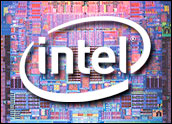
Intel is stirring up the marketplace for digital storage with the introduction of a lower-cost, solid-state drive aimed at the value segment of netbooks and laptops.
The Intel X25 Value SATA SSD has 40 GB of storage and is priced at US$125, adding to the giant chip maker’s storage line of 80 GB and 160 GB SSDs.
“Intel will create some excitement in the market among customers and among competition,” said Michael Yang, an analyst with iSuppli. However, the move is easy to copy, he said. “I expect to see a slew of other manufacturers release similar products.”
Fewer Chips, Less Cost
Intel is able to lower the price on its latest SSD by providing less storage space. “Less chips, less costs — less goes into it,” Yang told the E-Commerce Times.
The chip maker has its work cut out for it, he said. Intel must now convince partners to configure new personal computers with 40 GB drives. The new SSD might reduce cost a bit, Yang said, but it won’t fundamentally lower the price of PCs.
The 40 GB device may also be a good way to introduce customers to SSDs, but Yang added that SSDs have limitations that will take time to overcome. For instance, as more computer users demand more storage, 40 GB will not provide enough space.
Wave of the Future?
“SSDs are the wave of the future,” said Dan Olds, an analyst with Gabriel Consulting. With no movable parts or spinning platters, SSDs are faster than hard drives because they use memory as the storage medium, Olds told the E-Commerce Times.
“You can get more information quicker, because it’s doing a memory read,” Olds said. “With a hard drive, mechanical things have to happen. The head has to float.”
SSDs also use less power and don’t heat up as much, Olds added.
Hard Drive Competition
There is one main problem, however, with SSDs: They are more expensive than hard drives. The new Intel SSD costs around $3.25 per GB of power, Olds noted, whereas one of the fastest hard drives on the market is going for $1.07 per GB, while a standard hard drive usually costs less than 10 cents per GB. [*Correction – March 17, 2010]
Intel also has a lot of competition, with OCZ Technology providing a SSD with 32 GB for $99. Others in the market include Samsung, Seagate and Western Digital.
Because the price for SSDs is higher than hard drive prices, Olds said, Intel and others are going to be competing for customers in the mid range. The SSD gives users a faster storage option than before, he explained, but they will have to spend more to get it.
Tough Sell to Consumers
Consumers looking for a new computer have been trained to look for certain things when they are shopping, said Jim Handy, SSD analyst with Objective Analysis.
“Until consumers change, it’s going to be hard to sell SSDs,” he said.
First, consumers set a budget. Then they look at PCs witin that price range, he said. Buyers next look at the processing speed of the computer and the hard drive.
“When they take this approach, SSDs never look good,” Handy told the E-Commerce Times. “We haven’t seen a lot of adoption of SSDs, no matter the price, because the capacity is significantly lower for hard drives with a similar price.”
Selling SSDs in Tandem
The way to promote SSDs, especially to gamers and those who want hard-core computing power, would be to sell it as an addition to the hard drive, Handy said.
The combo will add to the cost, but it will also add performance, he explained, allowing the SSD to be used as the startup for the operating system and other key programs. Users then would use the traditional hard drive for extra storage space.
*ECT News Network editor’s note – March 17, 2010: The original published version of this story included this erroneous statement: “The new Intel SSD costs around $1.25 per GB of power, Olds noted, whereas the fastest hard drives from Intel are going for less than $1 per GB.” In fact, the cost of the new Intel SSD is actually $3.25 per GB, according to Olds, and Intel does not make a hard drive.






















































Social Media
See all Social Media